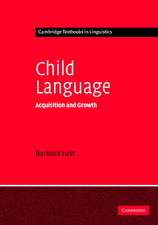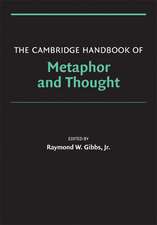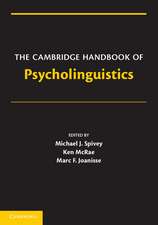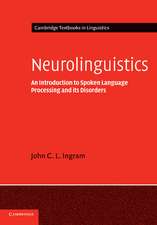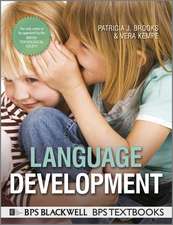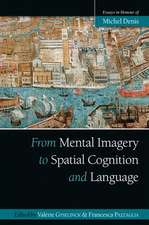Positive Psychology Perspectives on Foreign Language Learning and Teaching: Second Language Learning and Teaching
Editat de Danuta Gabryś-Barker, Dagmara Gałajdaen Limba Engleză Hardback – 31 mai 2016
| Toate formatele și edițiile | Preț | Express |
|---|---|---|
| Paperback (1) | 894.34 lei 6-8 săpt. | |
| Springer International Publishing – 30 mai 2018 | 894.34 lei 6-8 săpt. | |
| Hardback (1) | 900.49 lei 6-8 săpt. | |
| Springer International Publishing – 31 mai 2016 | 900.49 lei 6-8 săpt. |
Din seria Second Language Learning and Teaching
- 9%
 Preț: 627.98 lei
Preț: 627.98 lei - 15%
 Preț: 640.55 lei
Preț: 640.55 lei - 15%
 Preț: 645.47 lei
Preț: 645.47 lei - 15%
 Preț: 647.27 lei
Preț: 647.27 lei - 18%
 Preț: 965.34 lei
Preț: 965.34 lei - 15%
 Preț: 646.11 lei
Preț: 646.11 lei - 15%
 Preț: 647.08 lei
Preț: 647.08 lei - 15%
 Preț: 650.04 lei
Preț: 650.04 lei - 15%
 Preț: 645.60 lei
Preț: 645.60 lei - 15%
 Preț: 645.79 lei
Preț: 645.79 lei - 15%
 Preț: 643.34 lei
Preț: 643.34 lei - 15%
 Preț: 642.83 lei
Preț: 642.83 lei -
 Preț: 377.24 lei
Preț: 377.24 lei - 15%
 Preț: 638.76 lei
Preț: 638.76 lei - 24%
 Preț: 777.90 lei
Preț: 777.90 lei - 15%
 Preț: 645.47 lei
Preț: 645.47 lei - 15%
 Preț: 638.43 lei
Preț: 638.43 lei - 18%
 Preț: 736.01 lei
Preț: 736.01 lei - 18%
 Preț: 947.67 lei
Preț: 947.67 lei -
 Preț: 391.79 lei
Preț: 391.79 lei - 15%
 Preț: 642.51 lei
Preț: 642.51 lei -
 Preț: 377.24 lei
Preț: 377.24 lei - 20%
 Preț: 570.42 lei
Preț: 570.42 lei -
 Preț: 395.09 lei
Preț: 395.09 lei -
 Preț: 391.02 lei
Preț: 391.02 lei - 15%
 Preț: 647.27 lei
Preț: 647.27 lei - 20%
 Preț: 565.89 lei
Preț: 565.89 lei -
 Preț: 394.51 lei
Preț: 394.51 lei -
 Preț: 388.52 lei
Preț: 388.52 lei - 15%
 Preț: 646.62 lei
Preț: 646.62 lei - 15%
 Preț: 649.87 lei
Preț: 649.87 lei - 15%
 Preț: 638.43 lei
Preț: 638.43 lei - 15%
 Preț: 644.95 lei
Preț: 644.95 lei -
 Preț: 391.61 lei
Preț: 391.61 lei - 15%
 Preț: 641.20 lei
Preț: 641.20 lei - 15%
 Preț: 645.79 lei
Preț: 645.79 lei
Preț: 900.49 lei
Preț vechi: 1098.15 lei
-18% Nou
Puncte Express: 1351
Preț estimativ în valută:
172.30€ • 179.92$ • 142.29£
172.30€ • 179.92$ • 142.29£
Carte tipărită la comandă
Livrare economică 15-29 aprilie
Preluare comenzi: 021 569.72.76
Specificații
ISBN-13: 9783319329536
ISBN-10: 3319329537
Pagini: 565
Ilustrații: XX, 366 p. 3 illus. in color.
Dimensiuni: 155 x 235 x 22 mm
Greutate: 0.72 kg
Ediția:1st ed. 2016
Editura: Springer International Publishing
Colecția Springer
Seria Second Language Learning and Teaching
Locul publicării:Cham, Switzerland
ISBN-10: 3319329537
Pagini: 565
Ilustrații: XX, 366 p. 3 illus. in color.
Dimensiuni: 155 x 235 x 22 mm
Greutate: 0.72 kg
Ediția:1st ed. 2016
Editura: Springer International Publishing
Colecția Springer
Seria Second Language Learning and Teaching
Locul publicării:Cham, Switzerland
Cuprins
So Far So Good: An Overviewof Positive Psychology and Its Contributions to SLA.- Powerfully Positive: Searching for a Model of Language LearnerWell-Being.- Difficulty and Coping Strategies in Language Education: Is Positive Psychology Misrepresented inSLA/FLT?.- The Positive Broadening Power of a Focuson Well-Being in the Language Classroom.- Activating Character StrengthsThrough Poetic Encounters in a Foreign Language – A Case Study.- PedagogicalImplications of Positive Psychology: PositiveEmotions and Human Strengths in Vocabulary Strategy Training.
Notă biografică
Danuta Gabryś-Barker is Professor of English at theUniversity of Silesia, Katowice, Poland, where she lectures and supervises M.A.and Ph.D. theses in applied linguistics, psycholinguistics and especially insecond language acquisition. She also works as a teacher trainer. Her mainareas of interest are multilingualism (especially at the level of mentallexicon and syntax) and applied psycholinguistics (modalities, learner profilesand affectivity). As a teacher trainer she lectures on research methods insecond language acquisition and TEFL projects. Her major concern is the role ofaction research in teacher development. Prof. Gabryś-Barker has published overa hundred articles nationally as well as internationally and a book Aspects ofmultilingual storage, processing and retrieval, Katowice: University of SilesiaPress, 2005 and Reflectivity in pre-service teacher education which came out in2012. She has edited nine volumes, amongothers a volume Morphosyntactic Issues in Second Language Acquisition(Multilingual Matters, 2008), Topics in Applied Psycholinguistics (Universityof Silesia Press, 2015) and co-edited The Affective Dimension in SecondLanguage Acquisition (Multilingual Matters, 2013). She is the Vice-president ofthe Polish Association for the Study of English (PASE) and a Board member ofInternational Association of Multilingualism. She is the editor-in-chief(together with Eva Vetter) of the International Journal of Multilingualism(Taylor & Francis/Routledge).
Dagmara Gałajda received her Ph.D. degree in linguisticsfrom the University of Silesia, where she works as assistant professor. Theresearch area of her doctoral thesis concentrated on willingness to communicate(WTC) in L1 and L2 and on other related communication variables likecommunication apprehension (CA) and self-perceived communicative competence.Apart from communication studies, her research interests focus on teacher'saction zone in facilitating group dynamics, affect in language learning, individuallearner differences in SLA / FLL and reflective teaching. Recent publicationsinclude: Teacher's Action Zone inFacilitating Group Dynamics in M. Pinto (ed.) (2012) Linguarum Arena Vol. 3, Anxiety and perceived communicationcompetence as predictors of willingness to communicate in ESL/FL classroom inD. Gabryś-Barker, J. Bielska (eds) (2013) The Affective Dimension in SecondLanguage Acquisition. Clevedon: Multilingual Matters, Communicationapprehension and self-perceived communication competence as variablesunderlying willingness to communicate in K. Piątkowska, E.Kościałkowska-Okońska (eds) (2013) Correspondences and Contrasts in ForeignLanguage Pedagogy and Translation Studies. Berlin: Springer-Verlag. Currentlyshe is co-editing Young Scholars onTheoretical and Applied Linguistics: Research Projects Oficyna Wydawnicza –Wyższa Szkoła Humanitas (together with Maria Wysocka, Artur Kijak and PawełZakrajewski).
Textul de pe ultima copertă
This book introduces readers to the principles of a fairlynew branch of psychology – positive psychology – and demonstrates how they canbe applied in the context of second language acquisition in a naturalenvironment and in instructed foreign language (FL) learning. It focuses bothon the well-being and success of the learner and the professional and personalwell-being of the teacher. Further, the book stresses the importance of thepositive emotions and character strengths of those involved in the process oflanguage learning and teaching, as well as the significant role played byenabling institutions such as school and, at the micro-level, individual FLclasses.
Caracteristici
Presents the first book-length introduction to positive psychology principles in FL teaching and learning, addressing the needs of theorists and practitioners alike representative selection of the most recent and innovative research by respected international and Polish scholars in the field of positive psychology in natural and instructed language acquisition and learning contexts Features a compellingpresentation of the application of the principles of positive psychology to FLteaching and learning, focusing on personality strengths, positive emotions,and enabling institutions Introduces readers tonew teaching methods and strategies in foreign language teaching and learning Includes supplementary material: sn.pub/extras








